TNG Worklife is a podcast and ongoing conversation about the work-life experiences of the transgender, nonbinary, and gender expansive communities.
You can find us on Apple, Spotify, and Instagram.
This podcast is always free, and if you enjoyed it, you can support the work by subscribing for as little as $8 a month.
About Dr. Gennifer Herley
LinkedIn: https://www.linkedin.com/in/dr-gennifer-herley-phd-8aa954b6/
Gender Solutions NY: https://gendersolutionsny.com/
Credits
Opening music - Abstract Fashion Pop by QubeSounds
Closing music - Where the Light Is by lemonmusicstudio
Episode Transcript
[upbeat pop music plays]
[Kai Stowers]
Hello and welcome to season two of TNG Worklife, a podcast about the experiences of the trans, nonbinary, and gender expansive communities in the workplace. This season we're focusing on the strength we gain through community and partnership. You can join our community by signing up at TNGworklife.substack.com, which will deliver each episode, including the full transcript, right to your inbox. Today, I'm speaking with Dr. Gennnifer Herley on coming out as trans at 56, finding love, becoming a grandparent to five grandkids, the allies who helped her along the way, and how she uses her education to support our community. I hope you enjoy our conversation as much as I did.
[Kai Stowers]
Hi, Dr. Genn, and welcome to the TNG Worklife podcast. It's so good to have you here today.
[Dr. Gennifer Herley]
Hi, Kai. I am so happy to be here. It's always a pleasure talking with you.
Same, same. Well, I just love to start getting to know you as a person, and then we can move into some of the things you're doing out in the world and your professional life.
[Kai Stowers]
So you're both a parent and a grandparent. I always see a big smile on your face when you talk about this. Can you talk about like, you know, what family means to you?
[Dr. Gennifer Herley]
Well, first of all, I am a parent, I have a 24 year old daughter, we adopted her.
Okay.
[Dr. Gennifer Herley]
I'm not sure if we ever talked about that.
[Kai Stowers]
No, we haven't.
[Dr. Gennifer Herley]
Yeah. I was married in my past life, you know, BG before Genn. And we could not have children, so we actually did IVF eight times. Oh, wow. Yeah. Back in those days, it was covered in fall. So, uh, we decided to adopt, and it only took us three months total from start to finish.
And we adopted somebody domestically, baby. And she was 12 hours old when we found her. Yeah.
[Kai Stowers]
Yeah. Tiny.
[Dr. Gennifer Herley]
Yeah. So I have a 24-year-old daughter. When my ex-wife and I split, we had 50 50 custody for a while. And then, my ex-wife met her boyfriend or common in law - they're not married - but they've been together for 10 years, and he had an apartment up in his house.
So they gave it to my daughter and she jumped at it because it was her own place. So we go out, we talk all the time. So we've got a really, a wonderful relationship and I don't think I said this to you either, but coming out, she was the most important person in my life.
I'm not quite sure I would have been able to do this if she would have been upset about this or had a issue with it, but, she loved me to pieces, and she fully embraced me. So I was very fortunate that I didn't have to think about those things. Now, I've gotten remarried, a trans woman like myself, and she has three daughters, and we have four grandchildren, you know, fifth to come, and it's really wonderful. And I tell you, what's remarkable is they were here on Thanksgiving, and this is when you know gender is a social construct, right? None of them look at my wife and I, who's Nancy, none of them look at Nancy as anything different. They call me Gigi, and they call Nancy Nana.
And that's who we are. And that's a really beautiful thing. So yeah, family's important to me. I never thought in my life I'd transition, you know, I transitioned late in life. I never thought I would meet somebody. And then.
In my wildest dreams, I didn't think I'd become a grandparent. My daughter keeps telling me that she'll never have kids. She doesn't want any.
[Kai Stowers]
Yeah. Yeah. Yeah.
[Dr. Gennifer Herley]
So I'm thrilled that I have these four and a fifth one coming and, it's just pure joy being a grandparent, pure joy.
You've mentioned being later in life a few times and how you really enjoy it. What are some of the things that you really appreciate about now that maybe didn't exist for you when you were younger?
[Dr. Gennifer Herley]
You know, I think that not everybody's with age is wisdom, but I think we all are here to learn, and you learn a lot over time.
[Kai Stowers]
And then, unfortunately with life, it takes time to learn [laughter] life, you know, some lessons we need more than once before we get them.
[Dr. Gennifer Herley]
Yeah, exactly. Exactly. So what I love is just. The fact that I recognize that I'm 61, I'm on the back nine of my life. And I'm really trying to enjoy it as much as I can.
I like to just be with people or do things that bring me enjoyment. When I was younger, I didn't always do that. I always felt like I had to fit in some way or please a lot of people. So now I'm into pleasing Genn.
Believe it or not, I've been writing a book for 15 years, [laughter] maybe longer, it could be 20. I've been doing self development or working mental health for my own self for Close to 30 years. So I have a, psychoanalyst who I've been working with for 30 years. Kai, can you imagine? And I wrote a book related to that about what our discussions were about my life.
So it was sort of like a memoir, but then it sort of turns into a spiritual, book. And now I have to add the transition and everything. So I went back to it after leaving it for a couple of years. And I saw what I wrote and I was like, wow, I was such a different person then, but I don't want to change it.
You know, Kai, I don't want to change what I already wrote. I want to leave it the way it is.
Cause it's still a testament to who you were.
[Dr. Gennifer Herley]
Yeah. Yeah. I think it's important. So obviously, I enjoy working on myself, and I enjoy helping others in the community, you know, with mental health
[Kai Stowers]
Over the course of your career, you've run your own company, you've founded a nonprofit and you're now running your own LLC. What are some of the benefits you've experienced by taking on leadership roles?
[Dr. Gennifer Herley]
First of all, it really gives you a chance to impact people's lives. It really does. It gives me a voice. And also I have a responsibility to use that voice in the very best way I can to help the community.
In particular, members of our community who need the help the most.
[Kai Stowers]
What are some of the needs in our community that you see right now?
[Dr. Gennifer Herley]
For trans folks, workforce readiness, getting them jobs, and getting them into careers is really crucial.
It's economic empowerment, but you know, so many in our community are so frightened
[Kai Stowers]
For good reasons
[Dr. Gennifer Herley]
just to interview. So I think these workforce readiness cohorts that we put on were extremely powerful in that not only did we do resume writing and interviewing practice, but we met as a group, and people could talk about their experiences. what it was like being in the job.
I'm thinking of the conversations that younger folks are having when they think about what's it like to interview? What's it like to work?
[Kai Stowers]
There is a lot of prejudice and bias and really unacceptable things that happen to our community in the workplace. And there's also good places to work. And I think that level setting of, yeah, you might wind up in an interview with someone who is just terrible to you and there's also places where people are doing better.
I think that level setting is so important for our community.
[Dr. Gennifer Herley]
You know, not only are you interviewing for a job, but you're interviewing them. Whatever your situation is, you don't need to take a job if they're not going to support you.
Right? If you're not going to have a sense of belonging.
[Kai Stowers]
I actually wanted to throw in a story I've had, I work for myself, and I sometimes go on interviews for contract positions, and most of them have been great. But I had one that was terrible.
The woman, and I've got my pronouns on my resume and my email, use the wrong pronouns. And when I corrected her, just gave me the most condescending, passive, aggressive quote unquote apology I've ever heard. I was furious. I stayed on the call because I was thinking I need to be the bigger person. In hindsight,
I should have just hung up at that point. And I finally just reached out to her organization and shared my experience. I had the head of HR get back to me with an apology. That was an important thing to kind of turn around my experience to at least give feedback to an organization that turned out was willing to hear it.
[Dr. Gennifer Herley]
What I found with a lot of organizations, usually people contact me to speak around transgender week of awareness, but what I found is, is that a lot of companies don't really want to make an investment. Into training
[Kai Stowers]
Yeah.
[Dr. Gennifer Herley]
They don't know how many people in their organization who are not out, right? They don't know how many folks in their organization who do have a team who's trans or non binary and nonconforming.
So. It's a bit frustrating to me and I'm sure it's been to you that when I go and speak to folks and give proposals, a lot of times, they'll turn to me and say we don't have a budget for that.
And I said, well, wait a minute. I see your corporate creed, you're a diverse, inclusive organization. You brought me onto the call. We've been speaking for 45 minutes. How is it that you don't have a budget for this? You know, and it really does fall on the leadership to understand that trans folks are here, right here to stay.
We're increasing in numbers. Thank you to all the younger generations.
[Kai Stowers]
Our communities have existed for thousands of years across every culture. Cultures that are more accepting, we're visible. Cultures that are less accepting, we tend to be less visible, but yeah, we are here, and this is not, this is not new.
[Dr. Gennifer Herley]
It is not new, but it is disappointing for myself, and I'm sure the same for you, so I just press on.
[Kai Stowers]
I think it's tough too, because a lot of companies are not being proactive about trans inclusion and then things like what I just shared when I'm on an interview.
And one of your recruiters is just a total ass to someone from the trans community and I can talk to leader of HR and she can say, Hey, these aren't our company's values. But I'm like, well, your culture is defined by the worst behavior that you tolerate. And if you're not out in front of these issues, I can promise you these things are happening in your organization.
[Dr. Gennifer Herley]
And you can't claim ignorance, right? You can't claim ignorance. This sort of bleeds into, our workforce readiness where we're trying to help folks with emotional regulation, right? If your experience as a trans person, has been very difficult, and let's face it, we all have our level of difficulty, but some folks really have it really difficult.
Really, really challenging. People of color, for instance, who are trans have a much more challenging atmosphere with this. So it is difficult to have that emotional regulation, right? And we have to think about what's in our best interest as well. That's one of the things that we go over when we're talking in a group and our workforce readiness.
[Kai Stowers]
Yeah. Yeah. And. You know, our workplaces, we really value people who can be calm and cool and collected even under stress. And there's a lot of great things about that. But what often happens is minority groups. So trans people, trans people of color, people of color more broadly receive these microaggressions, like they receive all of these messages of how they don't matter.
They're not valued. And when someone finally expresses upset, the organization is like, wow, you need to regulate your emotions better. [laughter]
Did you really miss everything that happened before? And the answer is yes. Like they really didn't see it. I mean, sometimes they do and that's a different discussion, but yeah.
[Dr. Gennifer Herley]
Yeah. There's a lot, there's a lot to be learned.
Before you transitioned and it was around 50, correct?
[Dr. Gennifer Herley]
I was actually 56.
Oh, wow. Yeah. Yeah. It is never too late.
[Dr. Gennifer Herley]
It is never too late. That's what I tell everybody.
Yeah. Before that you were married to a woman, you weren't part of the LGBTQ plus community.
[Kai Stowers]
How did you begin to form the connections that you now have to queer and trans people?
[Dr. Gennifer Herley]
You know, when I think back about it, it's this sort of moonshot to where I was to where I am in such a short period of time. In fact, growing up where I did, I grew up in a place called Massapequa, New York on Long Island.
It's completely white, there still are no people of color there. And growing up, going to school, I didn't know a single gay person.
[Kai Stowers]
Yeah. Cause back then kids just weren't out.
[Dr. Gennifer Herley]
Yeah. Kids just weren't out. So, yeah, so yeah, I mean, my dad God rest his salt.
He was a product of his father and he was. He was racist, he was anti-semitic, he was homophobic, you name it. And, growing up, your parents put those things into you.
[Kai Stowers]
Absolutely.
[Dr. Gennifer Herley]
Right. So when I think back about where I was as a teenager and how I felt about groups of people.
Unbeknownst to me that there was people outside of Massapequa, because you only know what you know what you're told and what you're exposed to. So how I really got in with the whole community was when I first came out, I joined the NGLCC, which is the National Gay and Lesbian Chamber of Commerce.
And I went to one of their meetings in Manhattan. I was scared to death. I just came out for like two months. I was brand new. You couldn't get any newer than I was, and I sat with a group of folks, and I was so nervous and I just wanted to get out of there to be honest.
But then I got invited to their gala, a huge event down in Washington, D. C., and I met two really wonderful guys, Bill and Kevin, they're a married couple, and Bill is now the president of our board, and these two guys took me under their wing. They've been out forever.
They're the polar opposites of what I was. Phil's kind of a low key, logical, really well read guy, kind of conservative and Kevin is complete opposite. He's extremely flamboyant, and I remember they were showing a movie at the end and I started crying and, Kevin started going, you go girl, you let it out, you let it out, you let it out, you know, it was the beginning when they introduced me and brought me to so many events that they were involved in, and this was just before COVID.
It was really nice of those two. I actually call them my adopted parents. We just become really great friends and they introduced me to so many people. The other thing that sort of happened to me was I took an adjunct professor's job at John Jay University and I was teaching sociology, which is perfect for me because I knew nothing about anything.
[Kai Stowers]
Right. Yeah. I'm thinking of your upbringing. You're like, everyone was white. My parents were telling me everyone who wasn't white there's something terrible about them.
[Dr. Gennifer Herley]
Exactly. Any other race wasn't any good. You know, so that's what I was brought up to believe.
So learning all these different Social issues really felt wonderful. I was always a sensitive kid, even though I was being taught a lot of things that really weren't so sensitive.
So, um, yeah between the adjunct professor's position and meeting Kevin and Bill and being out in the community and just meeting so many people. I told people I had a lot of issues with my family.
[Kai Stowers]
mmhmm
[Dr. Gennifer Herley]
So somebody once told me, you know, Genn, you have a biological family, you have a logical family.
[Kai Stowers]
[laughter] I like that phrasing. And that's such a common story for so many of us where our family of origin just can't meet us where we are, we find like that community and support where we need to.
[Dr. Gennifer Herley]
It's interesting from my perspective, too, because wherever people are, they have all kinds of stereotypes of other people.
So with the LGBTQ community, a lot of people in the trans community, at least when I came in, I was hearing a lot of terrible things about gay white men and,
[Kai Stowers]
Mmhmm
[Dr. Gennifer Herley]
Lesbians not helping trans people. yeah. But I have not experienced that any place I've ever gone.
No matter what the person looked like, no matter what their race was, no matter if they were immigrants, it didn't matter. If they were part of the LGBT community and I talked to them, they were respectful towards me. And many of them were very helpful. And I'll say this, I don't think Trans New York could have gotten off the ground without the help of, uh, Kevin and Bill and a guy named Fabrice Houdart, who's a good friend of mine and so many others. I don't want to leave everybody out, but there are so many folks who really took me under their wing in a very loving way.
[Kai Stowers]
Absolutely. Yeah. Yeah. You talk about the importance of asking for help. And we've talked about some commonalities in our community, but what are some of the differences that you see in our community that really need to be attended to?
[Dr. Gennifer Herley]
I think the workforce readiness is a big thing.
It's really important to help others, get educated, get college degrees. I think that would be a really great.
[Kai Stowers]
And I just think of the obstacles trans and nonbinary kids face, especially the ones who don't have parental support and you have to figure out life way too young.
[Dr. Gennifer Herley]
And they don't have the money school's super expensive.
They don't really have a lot of direction. I mean, God knows I didn't have any direction when I was 18 or 19 years old.
[Kai Stowers]
My parents were very clear that I was going to go to college and they were, you know, I need to do my part, but they were also going to help. If I didn't have that, would I have known how to like get into college, how to navigate college, how to pay for college?
[Dr. Gennifer Herley]
And I don't think I said this to you, but my father, he went to high school. That was it.
I went to college for a month after I got out of high school and dropped out. I went for computer programming, which is the worst possible thing I could ever do.
But I was dating my, ex wife and her father was in programming. So he thought that would be good for me, but it wasn't I can't pay attention to any details, so it's the worst , you know, kind of position for somebody like me.
[Kai Stowers]
Yeah.
[Dr. Gennifer Herley]
So I didn't go back to school until I was 36 years old. I had high school diploma up until I was 36.
[Kai Stowers]
You didn't just go back to school. You wound up getting a PhD, right?
[Dr. Gennifer Herley]
Yeah, I ended up getting a PhD. Right. And I can thank my analyst for that. So yeah, she really believed in me. She pushed me. She knew I was smart, which I think I am to a certain degree.
And then back in those days, there was a two year degree. So I got a two year degree. Then I got my four year degree. And then she convinced me to take a master's, which I don't know how she did that, but she did. She wanted me to go into organizational psychology. I loved what she was doing because it was so helpful.
And she said, you know, organizational psychology would be great because it's a big need. You can make a lot of money doing it. I said, well, that sounds great. And then I remember, I was like 48.
And she goes, well, you're going to get your doctorate. And I said, are you crazy? That's what I said to my psychologist. I said, are you crazy? I'm not going to, I'm not going to get a doctorate. I'll be in my fifties by the time that's over.
And she goes, you know, in six years, you're going to be 52 anyway. So what's the difference? So that's what I did. And I did it all part time. I was working full time, but I was in sales, and I had a lot of time on my hands. And I'm a Gemini, I like astrology
so Geminis need a lot of different things to do.
[Kai Stowers]
With your organizational psychology background, what are some of the ways you found to work with organizations and to support them?
[Dr. Gennifer Herley]
Well, with organizations, it was a need on their part, but it was also a need on my part because I had this overwhelming desire to help trans folks.
I knew that they needed workforce inclusion training. And we were in COVID so we could do it virtually and we can get to a lot of folks that way. But then it became clear to me, we were working with Northwell Health.
They have 80,000 employees. We have 30 people who come into a Zoom meeting. I don't know the math on that it'll take a long time to scale. So, I wanted to come up with an online, self paced, training module, and that's what we did.
It's done okay. It's a really great training module. But what I didn't recognize about training modules is that investment that a large corporation would have to make to do that. Cause if I do a training for 30 people, it's X amount. If I'm going to now sell you a module that you're going to give to 80, 000 people.
Well, if I sold it to a dollar a person, that's $80,000, right? Going to a corporation for $5,000 is hard enough. Going to a corporation for, you know, $50,000 pretty much takes an act of God to get them to sign off. And so it's been challenging to figure out how we're going to do that.
But what I thought was, is that I'm going to take the module and I'm going to sell it to individuals. It'd be great for parents, aunts, uncles, family members who don't know anything about our community, and it's essentially trans 101 allyship. That's one of the ideas that I have with the module.
[Kai Stowers]
There are so many people that when they meet a trans person or when somebody in their family comes out, they're like, Well, I know what I've heard.
And I see this person I care about and I want to do better. I want to learn more.
Well, I know at heart that you're basically an optimist, and as we look around these coordinated political attacks on our community, what feeds and maintains your sense that optimism is even called for, like…
[Dr. Gennifer Herley]
Yeah, a lot of, a lot of senses, it's not. So one of the groups that I'm going to start working with again, who I work with every now and then, are men who cross dress. And I think that they were always in hiding, you know, and women were always allowed to wear male clothes, and nobody would blink.
[Kai Stowers]
Well, there's more history there
[Dr. Gennifer Herley]
to a certain degree
[Kai Stowers]
to a degree.
[Dr. Gennifer Herley]
I mean, it certainly was more acceptable.
A male, uh, wearing feminine clothes, but I think with Generation Z and the way they're identifying in the way binary is breaking down that these folks, they may not wanna be in public, and that's fine, but I'd like to help them lower the guilt and anxiety that they have inside about who they are because.
You can identify as male and cross dress, and that's fine. That's your gender expression. That's a beautiful thing.
[Kai Stowers]
Well, what is one thought that you'd like to leave our listeners with today?
[Dr. Gennifer Herley]
My wife and I talked about this. You know, we're so different.
different, the two of us, and I'm always telling her I'm grateful. I'm thankful. And I think that you be you, and I'll be me. Right. I think that's the one thing we could all leave ourselves with. You be you, I'm not asking you to be anybody different and I'll be me.
And let's just sort of accept one another.
[Kai Stowers]
Yeah. There's so much room in there. Yeah. Thank you so much. I really enjoyed our conversation today.
[Dr. Gennifer Herley]
It's always the bomb. It's always, I love talking to you.
[Kai Stowers]
Thank you so much for listening to season two, episode three of TNG Worklife, an independent podcast produced by Kai Stowers LLC. This podcast is always free, and if you enjoyed it, you can support the work by subscribing at TNGworklife.substack.com for as little as $8 a month. Your generous support goes towards production costs, and paying subscribers receive additional content as well as discounts on workshops and trainings that I lead.
If you would like to learn more about my coaching and consulting work, you can contact me through my website, www.kaistowers.com. Finally, I wish that each of you finds grounding, connection and abundance in your lives.





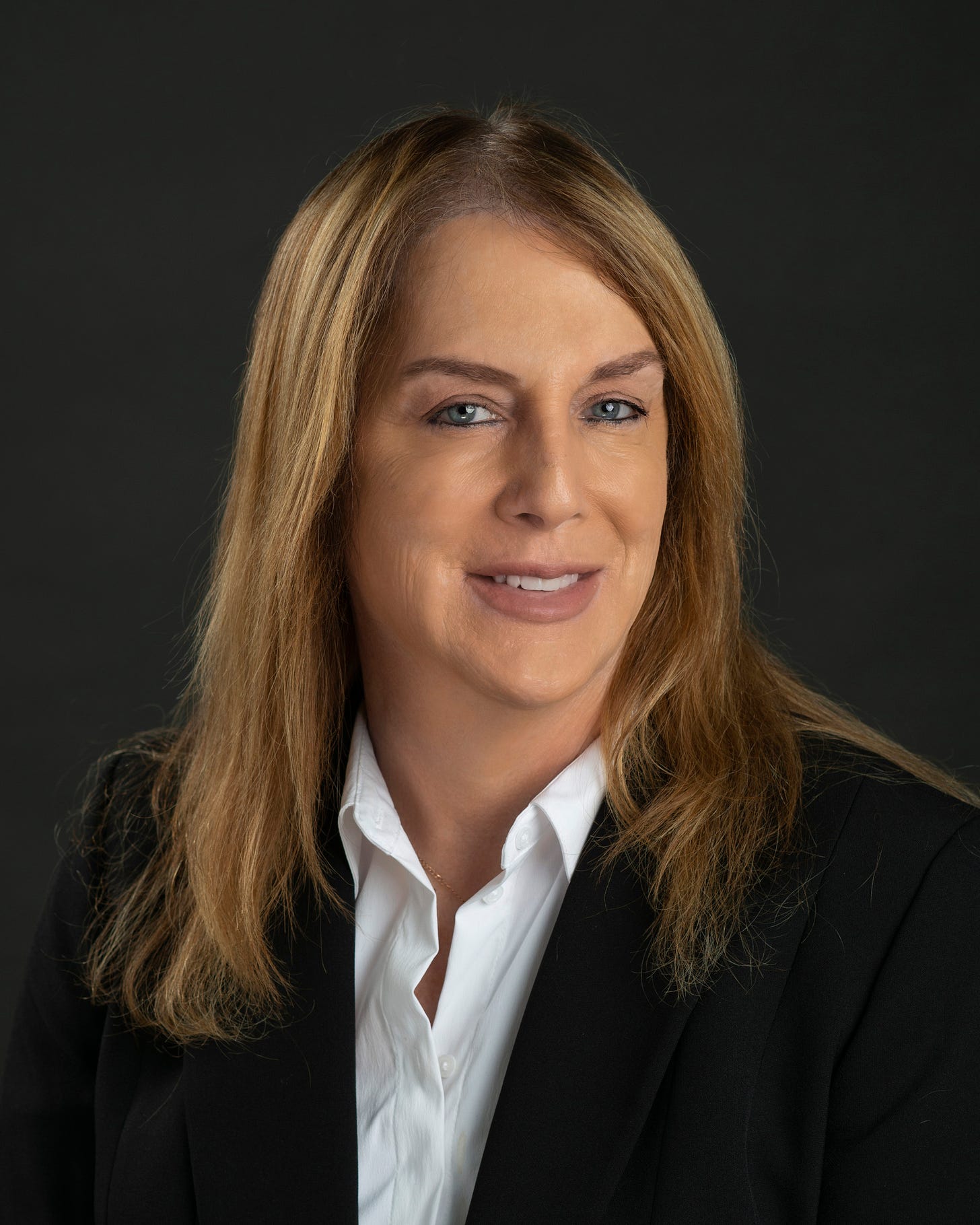


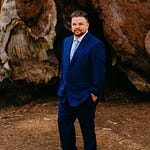
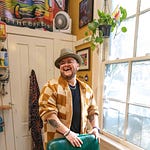

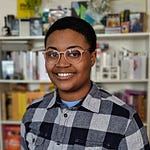
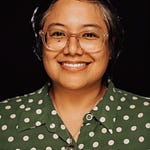
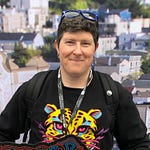

Share this post